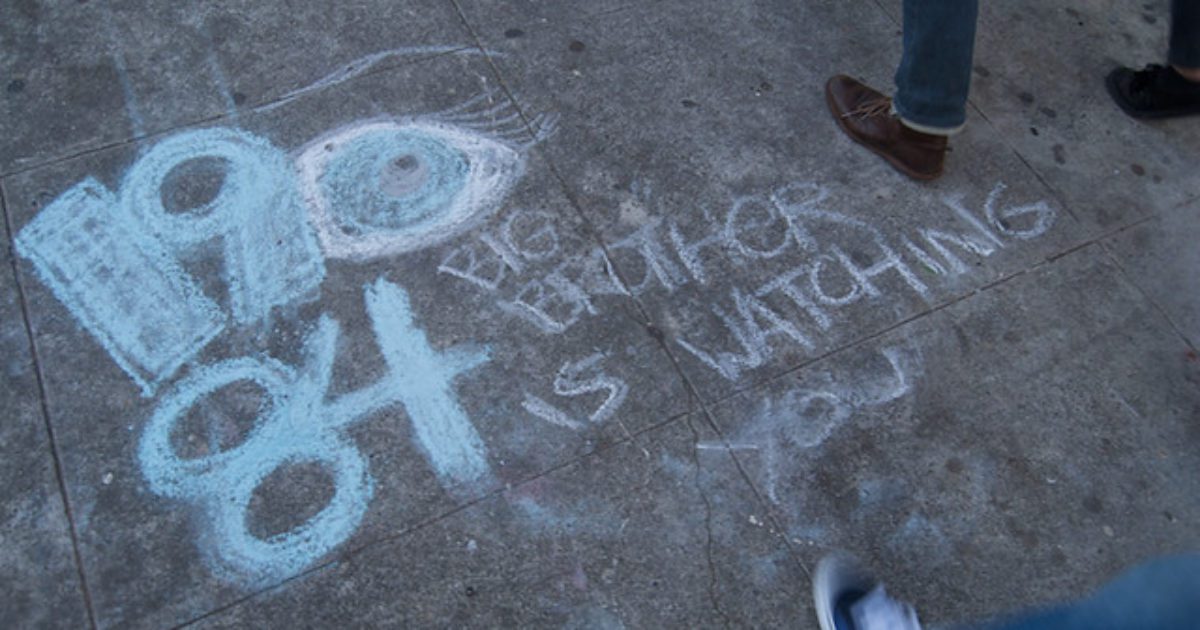Norway is on the fast track for a surveillance state where the government can monitor every single thing you purchase.
The Scandinavian country is among the world leaders in digital ID.
Swedish journalist Peter Imanuelsen wrote that the Norwegian government wants even more control of its citizens.
“The State Statistics Central bureau (SSB) in Norway is now demanding to know the food purchases of citizens and track all card payments,” Imanuelsen reported.
“They were central in establishing a “folk register” in Norway after the second world war, which led to people getting a unique ID number called “birth number”. This bureau already knows where people live and how much income they have, but now they also want to track exactly everything that you buy in the grocery store. They want to know every single food item that you buy.”
The Norwegian state wants to know the food purchases of citizens.
They actually want to track what food people ate for lunch by collecting their card payment data.
Remember when this was called a crazy conspiracy theory? https://t.co/f0wW02jrAo
— PeterSweden (@PeterSweden7) June 4, 2022
Imanuelsen writes in The Freedom Corner with PeterSweden:
This latest move is actually going pretty far in going towards a control society. We are now going full steam ahead. They have required almost all of the large grocery store chains in Norway to share their receipt data with the state.
They have also required a card terminal company called Nets to share detailed information with the state on all transactions. Some 80% of card payments done in grocery stores in Norway is done via this company.
“A connection with payment transactions done with debit card and grocery store receipts enables SSB [the state statistics bureau] to connect payment transactions and receipts in over 70% of daily grocery shopping” the state run bureau said in a statement on its website.
So imagine that! Norway is going to connect payment details done with card payments and grocery store receipts to figure out exactly what kind of food people are buying, and who is buying it. In other words, Norway will track exactly what kind of food citizens are buying. We are talking about a new level of state control here.
The state will know what you had for breakfast, lunch, dinner, everything. Cola, ham, chicken, steak, you name it. The state will see it all.
The state is going to track all of Norway’s payments. We are talking about enormous amounts of data here. The state statistics bureau will be collecting 2.4 million receipts EVERY day and some 1.6 billion card transactions every year. Oh, and get this. This data will not be deleted once it is collected according to NRK.
What kind of payment data are we talking about here? Well, let’s have a look.
- Transaction date.
- Transaction type status.
- Card service.
- Organization number of the company where the card was used.
- Name of the company where the card was used.
- Name of card user, bank account number.
- Amount payed for items.
- Total amount payed.
This data will then be combined with receipts from the store and used to figure out exactly what people bought. This is frightening!
So not only is the state collecting data on all card transactions and pairing them with receipts from stores to figure out exactly what you buy, they will also keep this data indefinitely. The state wants to know everything about you!
NRK described the amount of data the Norwegian government wants to collect from its citizens:
– How detailed maps of our lives does the state apparatus really need to make good decisions? asks research fellow Lisa Reutter at NTNU.
Reutter is researching how the public sector is being digitized and is using more and more data.
– When we increase the public administration’s ability to classify, predict and control citizens’ behavior using large amounts of digital data, the balance of power between citizen and state is shifted, Reutter says.
She believes that the shift in power is not necessarily a problem, but that “it happens without us as citizens really being aware of it”.
Statistics Norway has a long history that drives us to better understand what Norwegians do and how we feel. After World War II, Statistics Sweden was central in establishing the National Population Register, which led to everyone being given a unique social security number.
In the 1960s, Statistics Norway began collecting data from public registers. Now a number of public actors – NAV, the Tax Administration, the Prison and Probation Service, and the school system – share detailed information about us.
– It is not so new for Statistics Norway to have the opportunity to make fine-mesh analyzes. It may be different from other public agencies that now get more and more data from which they can make statistics, says Brændvang.
– It is a slightly different data source, but we have had the opportunity to publish on very small groups and sensitive groups for a very long time. However, we do not do this because we have requirements for confidentiality and privacy from the Statistics Act. Statistics are not about individuals, but about describing main features and development in society, says Brændvang.
With its digital ID system ahead of most countries, Norway is quickly becoming a surveillance state.
Imanuelsen explains Norway’s digital ID system HERE.



Join the conversation!
Please share your thoughts about this article below. We value your opinions, and would love to see you add to the discussion!